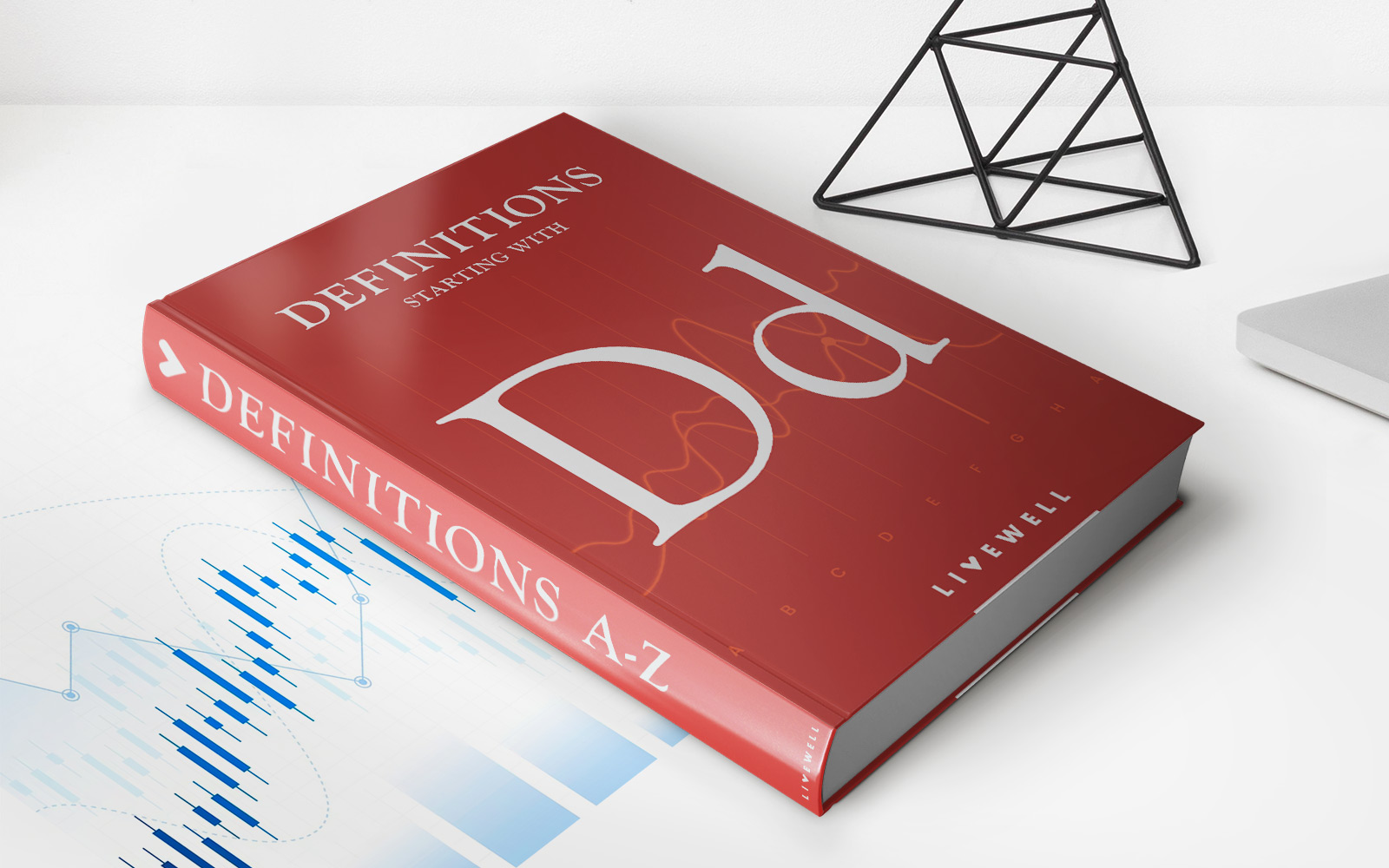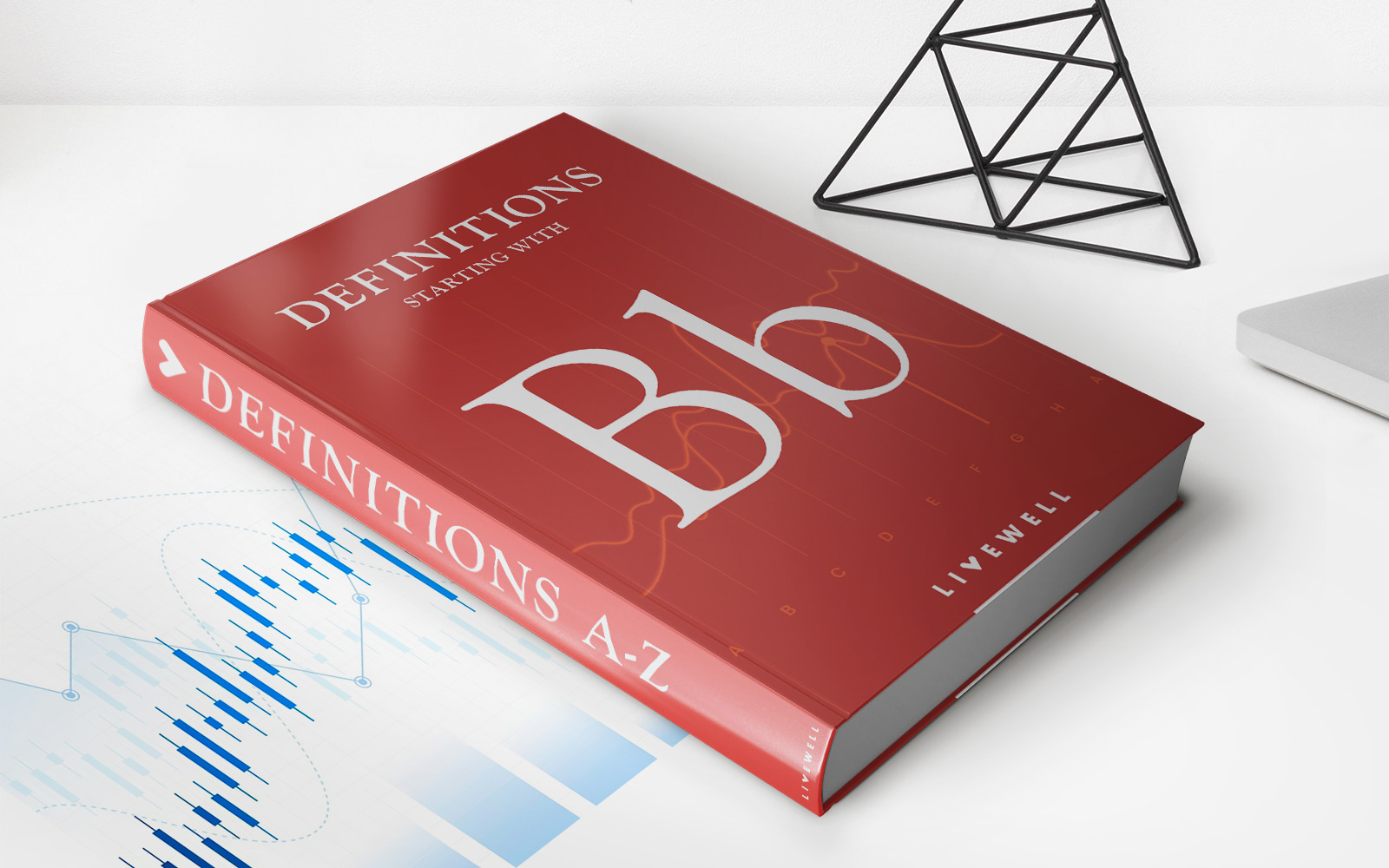Home>Finance>What Happens If I Don’t Pay Midland Credit Management


Finance
What Happens If I Don’t Pay Midland Credit Management
Modified: March 1, 2024
Find out the consequences of not paying Midland Credit Management. Learn about the financial implications you may face by neglecting to settle your debts.
(Many of the links in this article redirect to a specific reviewed product. Your purchase of these products through affiliate links helps to generate commission for LiveWell, at no extra cost. Learn more)
Table of Contents
Introduction
Dealing with debt can be a challenging and overwhelming experience. If you have outstanding financial obligations, you may find yourself being contacted by debt collection agencies, such as Midland Credit Management. It is important to understand the potential consequences of not paying your debt to these agencies.
Midland Credit Management is one of the largest debt collection agencies in the United States. They specialize in purchasing and collecting outstanding debts from various creditors. When a creditor sells your debt to Midland Credit Management, they become the new entity that you owe money to.
Ignoring or neglecting to pay your debt to Midland Credit Management can have serious ramifications. It is essential to be aware of the potential consequences in order to make informed decisions about your financial situation. In this article, we will delve into the possible outcomes of not paying your debt to Midland Credit Management, including its impact on your credit score, the potential for legal actions, possible harassment from debt collectors, the collection methods employed by the agency, and the available options for resolving the debt.
Understanding Midland Credit Management
Before delving into the consequences of not paying Midland Credit Management, it is important to have a clear understanding of the company and its role in the debt collection process.
Midland Credit Management is a debt buyer and debt collection agency that operates on behalf of creditors to collect outstanding debts. They acquire delinquent accounts from original creditors for a fraction of the total amount owed and then attempt to collect the full amount from the debtor. This means that if you have a debt with a credit card company, for example, the debt may be sold to Midland Credit Management, who will then become the entity responsible for collecting the debt.
It is worth noting that Midland Credit Management is regulated by the Fair Debt Collection Practices Act (FDCPA) in the United States. This means they must adhere to certain guidelines and laws when attempting to collect a debt. The FDCPA prohibits debt collection agencies from engaging in abusive, deceptive, or unfair practices.
When you owe money to Midland Credit Management, they will likely make contact with you via phone calls, letters, or even email. It is important to remember that you have rights as a debtor, such as the right to request validation of the debt and the right to dispute any inaccuracies. Understanding your rights can help you navigate the debt collection process more effectively.
Consequences of Not Paying Midland Credit Management
Choosing not to pay your debt to Midland Credit Management can have various consequences, affecting multiple areas of your financial life. It is important to be aware of these potential ramifications before deciding how to handle your debt.
1. Impact on Credit Score: One of the most significant consequences of not paying Midland Credit Management is the negative impact it can have on your credit score. When you fail to make payments, the debt may be reported to the credit bureaus, resulting in a lowered credit score. A lower credit score can make it challenging to secure loans, obtain favorable interest rates, or even rent an apartment.
2. Potential Legal Actions: If you continue to ignore your debts and do not cooperate with Midland Credit Management, they may consider taking legal action against you. They have the right to file a lawsuit to collect the outstanding balance. If they are successful in their legal pursuit, a judgment may be issued against you, resulting in wage garnishment, bank account levies, or property liens.
3. Harassment from Debt Collectors: While Midland Credit Management is bound by the regulations of the Fair Debt Collection Practices Act, it is not uncommon for debt collectors to engage in harassment tactics. This can include relentless phone calls, aggressive language, or threats. It is important to know your rights and report any abusive behavior to the appropriate authorities.
4. Collection Methods Used by Midland Credit Management: Midland Credit Management may employ various collection methods to recover the debt owed to them. This can include sending collection letters, making phone calls, or even pursuing wage garnishment or bank account levies. Understanding their collection tactics can help you prepare and respond appropriately.
5. Difficulty Obtaining Future Credit: Unresolved debts can make it challenging to obtain credit in the future. Lenders and creditors may be hesitant to extend credit to individuals with a history of unpaid debts. This can limit your financial opportunities and make it more difficult to achieve important milestones, such as buying a home or starting a business.
It is crucial to weigh these consequences carefully and consider the potential long-term impact of not paying your debt to Midland Credit Management. Exploring alternative options for resolving your debt, such as negotiating a payment plan or seeking professional debt management assistance, can help mitigate these negative consequences.
Impact on Credit Score
One of the most significant consequences of not paying your debt to Midland Credit Management is the negative impact it can have on your credit score. Your credit score is a numerical representation of your creditworthiness and lenders use it to assess your ability to repay debts.
When you fail to make payments or ignore your debt to Midland Credit Management, it is likely that they will report the delinquency to the credit bureaus. This negative information can remain on your credit report for up to seven years, significantly damaging your creditworthiness.
The extent to which your credit score is affected will depend on several factors, such as the amount of the debt, your overall credit history, and any other negative marks on your credit report. However, it is safe to say that a late payment or default on a debt can lower your credit score by a significant margin.
A lower credit score can have far-reaching consequences. It can make it difficult for you to obtain new credit in the future, qualify for favorable interest rates on loans and credit cards, or even affect your ability to rent an apartment or get a job in some cases.
Furthermore, a low credit score can also impact your insurance premiums. Insurance companies often use credit scores to determine premiums for auto insurance, homeowner’s insurance, and other types of coverage. The lower your credit score, the higher your insurance premiums may be.
Repairing a damaged credit score takes time and effort. It typically involves a combination of paying off outstanding debts, establishing a consistent payment history, and managing your credit responsibly moving forward.
If you want to mitigate the negative impact on your credit score, it is crucial to take proactive steps to address your debt. This may include working out a repayment plan with Midland Credit Management, exploring debt settlement options, or seeking assistance from a credit counseling agency.
Remember, the sooner you take action to address your debt and improve your credit score, the better off you will be in the long run. It may take time and patience, but with dedication and responsible financial habits, you can gradually rebuild your credit and improve your overall financial standing.
Potential Legal Actions
When you do not pay your debt to Midland Credit Management, there is a possibility that they may initiate legal actions against you to collect the outstanding amount. It is important to be aware of these potential legal consequences and understand your rights as a debtor.
Lawsuits: Midland Credit Management, as a debt collection agency, has the right to file a lawsuit against you to recover the unpaid debt. If they decide to take legal action, they will typically hire an attorney to represent them in court. In such cases, it is crucial to respond to the lawsuit within the specified timeframe and seek legal counsel if needed.
Judgments: If Midland Credit Management is successful in their lawsuit against you, the court may issue a judgment in their favor. This means that you will be legally obligated to repay the outstanding debt. A judgment can open the door for further collection actions, including wage garnishment, bank account levies, or property liens.
Wage Garnishment: If a judgment is obtained against you, Midland Credit Management may seek to garnish your wages. Wage garnishment allows them to deduct a portion of your income directly from your paycheck to repay the debt. The amount that can be garnished varies by state law, but it can significantly impact your take-home pay and make it more challenging to meet your financial obligations.
Bank Account Levies: Another potential legal action that Midland Credit Management may pursue is a bank account levy. With a court-issued order, they can freeze your bank account and seize funds to satisfy the outstanding debt. Bank account levies can leave you without access to your funds and create significant financial difficulties.
Property Liens: In some cases, Midland Credit Management may also seek to place a lien on your property. A lien is a legal claim that grants them the right to the proceeds of the sale of your property, such as a house or a vehicle, to satisfy the debt. Having a property lien can make it difficult to sell or refinance your property until the debt is resolved.
It is important to remember that while Midland Credit Management has the right to pursue legal actions, they must do so in accordance with the law. The Fair Debt Collection Practices Act (FDCPA) sets guidelines for debt collectors and prohibits them from engaging in abusive or unfair practices. If you believe that your rights have been violated, it is advisable to seek legal advice and report any misconduct to the appropriate authorities.
Dealing with potential legal actions can be stressful, which is why it is essential to consult with a lawyer who specializes in debt collection defense. They can provide guidance, help you understand your options, and work towards finding a resolution that is fair and beneficial for all parties involved.
Harassment from Debt Collectors
When you have unpaid debt with Midland Credit Management, one potential consequence you may face is harassment from debt collectors. While debt collectors are legally allowed to contact you to collect the debt, they must do so within the boundaries set by the Fair Debt Collection Practices Act (FDCPA).
Unfortunately, not all debt collectors adhere to these regulations, and some may resort to harassment tactics in their pursuit of payment. Harassment can take different forms, including excessive phone calls, aggressive language, intimidation, or even threats. It is crucial to understand that you have rights as a debtor, and you do not have to endure harassment from debt collectors.
Under the FDCPA, debt collectors are prohibited from engaging in abusive, deceptive, or unfair practices. Some examples of prohibited behaviors include:
- Using profane or obscene language
- Threatening violence or harm
- Calling excessively throughout the day
- Publicly disclosing your debt
- Falsely representing themselves or the amount you owe
If you experience harassment from debt collectors, there are steps you can take to protect yourself:
- Document all communication: Keep a record of all interactions with debt collectors, including dates, times, and details of the conversation. This documentation can be useful if you decide to file a complaint or take legal action.
- Assert your rights: Be aware of your rights under the FDCPA and assert them during your interactions with debt collectors. For example, you have the right to request written validation of the debt or to inform them that you wish to cease communication.
- Report any violations: If a debt collector violates the FDCPA, you can file a complaint with the Consumer Financial Protection Bureau (CFPB) and your state’s Attorney General’s office. Providing them with the necessary documentation will aid in their investigation.
- Seek legal assistance: If the harassment persists and becomes unbearable, it may be in your best interest to consult with an attorney who specializes in debt collection defense. They can advise you on the appropriate legal steps to take to protect your rights.
Remember, it is illegal for debt collectors to harass or intimidate you. By knowing your rights, documenting any violations, and taking appropriate action, you can defend yourself against harassment and ensure a more respectful and compliant debt collection process.
Collection Methods Used by Midland Credit Management
Midland Credit Management utilizes various collection methods to recover the debts owed to them. Understanding these tactics can help you prepare yourself and navigate the debt collection process more effectively.
1. Phone Calls: One of the most common collection methods used by Midland Credit Management is making phone calls to debtors. They may contact you repeatedly, aiming to discuss your outstanding debt and find a resolution. It is important to be aware that debt collectors are allowed to contact you, but they must do so within reasonable hours and avoid any form of harassment or intimidation.
2. Collection Letters: Midland Credit Management may also send collection letters to inform you about your debt and request payment. These letters will detail the amount owed, the creditor, and information on how to make a payment. It is crucial to carefully review these letters, confirm the accuracy of the debt, and consider your options for repayment.
3. Negotiation and Payment Plans: If you are unable to pay the debt in full, Midland Credit Management may be open to negotiating a payment plan. They may offer you the option to make monthly installments or agree to a reduced lump sum payment. It is important to carefully consider your financial situation and ensure that any proposed payment plan is manageable for your budget.
4. Reporting to Credit Bureaus: When you have an outstanding debt with Midland Credit Management, they have the right to report it to the credit bureaus. This can result in a negative mark on your credit report, which can lower your credit score and affect your ability to obtain credit in the future. It is important to be proactive in resolving the debt to minimize the impact on your credit score.
5. Legal Actions: In some cases, if all other collection efforts fail, Midland Credit Management may pursue legal actions against you. This can include filing a lawsuit to obtain a judgment against you. If they are successful, they may then pursue additional collection methods such as wage garnishment or bank account levies to satisfy the debt.
6. Credit Reporting Disputes: If you believe that there are errors or inaccuracies in the way Midland Credit Management has reported your debt to the credit bureaus, you have the right to dispute the information. You can submit a formal dispute to the credit bureaus and provide any supporting documents to support your claim. Midland Credit Management will then be required to provide evidence to validate the debt.
It is crucial to be aware of your rights as a debtor when dealing with Midland Credit Management or any other debt collection agency. Familiarize yourself with the Fair Debt Collection Practices Act (FDCPA) guidelines, which protect you from abusive or unfair collection practices. If you believe that Midland Credit Management is engaging in illegal or unethical behavior, consider seeking legal advice to understand your options and protect yourself during the debt collection process.
Options for Resolving the Debt
When faced with outstanding debt owed to Midland Credit Management, it is important to explore your options for resolving the debt. Taking proactive steps towards resolving your financial obligations can help alleviate the stress and potential consequences associated with unpaid debt. Here are some possible options to consider:
1. Paying in Full: The most straightforward option is to pay off the debt in full. If you have the means to do so, paying the full amount owed will help resolve the debt and may prevent further collection actions. Contact Midland Credit Management to obtain the accurate balance and payment instructions.
2. Negotiating a Settlement: If paying the full amount is not feasible, you may consider negotiating a settlement with Midland Credit Management. This involves reaching an agreement to pay a reduced lump sum that satisfies the debt. It is crucial to negotiate in writing and ensure that the settlement terms are clearly stated and agreed upon by both parties before making any payments.
3. Setting Up a Payment Plan: If you are unable to settle the debt in full or through a lump sum payment, Midland Credit Management may be willing to work out a payment plan. This can involve making monthly installments over a specified period of time. It is important to assess your budget and ensure that the proposed payment plan is manageable for you.
4. Debt Consolidation: If you have multiple debts, consolidating them into a single loan can streamline your payments and potentially lower your interest rate. This can make it easier to manage and pay off your debts. Explore debt consolidation options with a reputable financial institution or seek advice from a credit counseling agency.
5. Seeking Professional Debt Management Assistance: If you are struggling to navigate your debt situation, consider seeking assistance from a reputable credit counseling agency. They can provide guidance, create a personalized debt management plan, negotiate with Midland Credit Management on your behalf, and help you regain control of your financial situation.
6. Seeking Legal Advice: If you believe your rights have been violated during the debt collection process or if you are facing potential legal actions, consult with an attorney who specializes in debt collection defense. They can help you understand your legal rights, assess your options, and guide you through the necessary steps to protect yourself.
It is important to keep in mind that resolving your debt will require thorough communication, documentation, and follow-through on your part. Ensure that any agreements or payment arrangements are put in writing, keep records of all communication, and stay proactive in addressing your financial obligations. By taking action to address your debt, you can work towards regaining financial stability and peace of mind.
Seeking Legal Advice
When dealing with debt owed to Midland Credit Management, it may be beneficial to seek legal advice to navigate the complexities of the debt collection process and protect your rights as a debtor. Consulting with an attorney who specializes in debt collection defense can provide valuable guidance and advocate on your behalf. Here are some key reasons to consider seeking legal advice:
Understanding Your Rights: Debt collection laws can be complex, and it can be challenging to navigate the intricacies of your legal rights as a debtor. An attorney knowledgeable in debt collection can help you understand your rights under the Fair Debt Collection Practices Act (FDCPA) and other relevant laws. They can provide guidance on how to respond to collection efforts and protect yourself from unfair or abusive practices.
Dealing with Potential Legal Actions: If Midland Credit Management initiates legal actions, such as filing a lawsuit or obtaining a judgment against you, it is essential to have legal representation. An attorney can assess the validity of the claims, help you prepare a defense, and represent your interests in court. They can navigate the legal process and work towards achieving a favorable outcome in your case.
Negotiating with Midland Credit Management: An attorney experienced in debt collection defense can negotiate with Midland Credit Management on your behalf. They can work towards obtaining a more favorable settlement or payment plan that aligns with your financial capabilities. Having legal representation can help level the playing field and ensure that your interests are protected during negotiations.
Addressing Debt Collection Violations: If you believe that Midland Credit Management has violated your rights as a debtor, an attorney can help you document the violations and take appropriate action. They can guide you in filing complaints with regulatory agencies and pursuing legal remedies for any misconduct or harassment you have endured.
Providing Legal Guidance: Every debt situation is unique, and what may work for one person may not be suitable for another. An attorney can evaluate your individual circumstances, analyze your financial situation, and provide tailored legal advice. They can help you understand the potential risks, benefits, and repercussions of various debt resolution strategies.
When seeking legal advice, make sure to choose an attorney with expertise in debt collection defense. Research and consider referrals from trustworthy sources to find an attorney who will advocate for your best interests and guide you through the debt collection process.
Remember, having legal representation can provide you with the knowledge, support, and protection you need to navigate debt collection with confidence and safeguard your financial future.
Conclusion
Dealing with debt and the involvement of debt collection agencies like Midland Credit Management can be a daunting and overwhelming experience. Understanding the potential consequences of not paying your debt to such agencies is crucial in order to make informed decisions and protect your financial well-being.
In this article, we have explored various aspects related to not paying Midland Credit Management. We discussed the role of the agency, the potential impact on your credit score, the possibility of legal actions being taken, the risk of harassment from debt collectors, the collection methods employed by the agency, and the available options for resolving the debt.
It is important to prioritize finding a resolution for your debt, as neglecting it can have severe consequences for your financial future. Whether it is paying the debt in full, negotiating a settlement, setting up a payment plan, or seeking professional debt management assistance, taking proactive steps towards resolving your debt is essential.
If you find yourself facing legal actions or believe your rights have been violated during the debt collection process, seeking legal advice from a reputable attorney who specializes in debt collection defense can help protect your interests and guide you through the necessary steps.
Remember, staying informed, understanding your rights, and taking decisive action are key to effectively managing your debt and minimizing the potential negative impact on your financial well-being. By exploring your options and seeking the necessary support, you can regain control of your financial situation and work towards a more stable and prosperous future.














